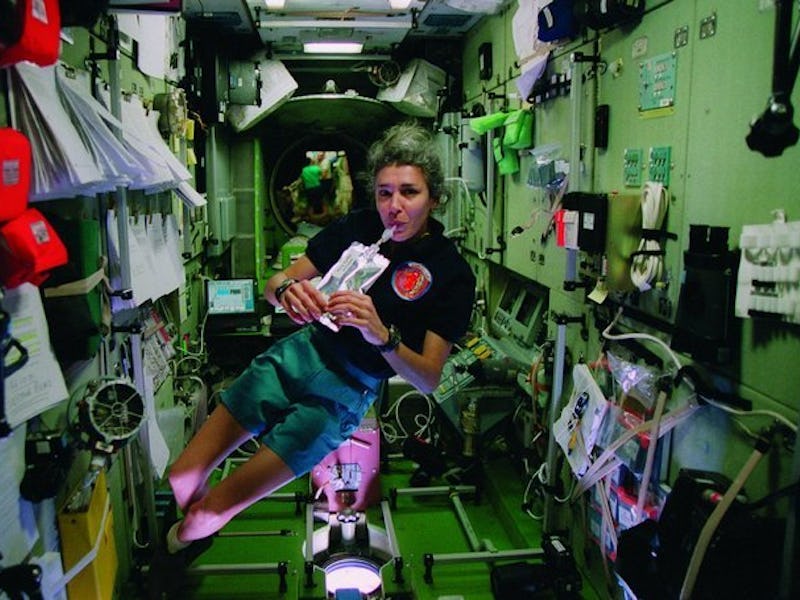A new conspiracy film bouncing around the internet this week spotlights Claudie Haigneré, France’s first woman in space. However, the video, does not focus on Haigneré’s orbital exploits or myriad accomplishments, but on something much more grim: her hospitalization for a drug overdose that conspiracy theorists say is tied to an attempt to warn the world about the existence of aliens. The media’s coverage of the video, unfortunately, has paid less attention to the mental and physical health needs of current and former astronauts, a critical issue as the second space race heats up, than it has to ominous sounding pull quotes.
Haigneré flew into space in 1996 for the Franco–Russian Cassiopée mission, flying to the Mir space station for 16 days before returning. She also became the first European woman to visit the International Space Station in 2001. She retired as an astronaut in 2002.
In 2008, Haigneré was hospitalized after allegedly taking an overdose of sleeping pills. At the time, she said the incident was a result of “burnout from her job working in a biology lab at the Pasteur Institute in Paris. Haigneré is now the director of the Cité des Sciences et de lIndustrie, Europe’s largest science museum.
That’s pretty much where all the actual facts end and where the video becomes irresponsible. The video alleges that Haigneré was found conscious, but screaming “Earth must be warned!” before falling into a coma. The video contends that she seems to have been airing warnings about extraterrestrial life, and that the incident was a suicide attempt, which Haigner denies.
“More ominously,” the robotic narrator states, “her laboratory where she worked at the forefront of human/alien DNA research was destroyed by fire.” Given the fact that humans have never before encountered extraterrestrial life, any notion that Haigneré was engaged with human/alien DNA research is nonsense. The pseudo-scientific blog Mysterious Universe offered this postulation: “She was convinced that Earth had been visited in the past by aliens who genetically engineered the human race.” That is — and this should be self evident — complete gibberish. The video goes on to pull out quotes out of context as further support for its preposterous claims.
The most troubling part of this micro-news cycle is the fact that most of the media coverage (The Sun, Science World Report, Daily Star, among others), has elected to dredge up an astronaut’s medical incident from eight years ago for little reasons other than to capitalize on a sensationalist topic. Daily Star is most apalling in their coverage, saying at one point: “the scientist does not appear to have denied the shocking claims.”
Haignerés silence does not indicate she has anything to hide or say. She is not obliged to engage with horseshittery.
NASA and other agencies take very seriously the effects space travel can have on a human’s mental health and physiology — and thus they employ space psychologists](https://www.inverse.com/article/19326-space-psychology-nasa-astronauts-mental-health-mars) whose job it is to make sure astronauts are equipped with what they need to stay safe. It’s unclear what caused Haigneré’s 2008 hospitalization — and it would insanely crass to speculate. But the whole story should only serve to highlight the fact that being an astronaut is hard —the effects of that stress can persist after the job’s over.
Astronauts represent the best bodies and minds on Earth, but they are still human, and can suffer from the same sorts of ailments that affect the rest of the public as well. This is critical to keep in mind as space travel goes private. We’re going to start seeing tourists launch up for short trips into orbit. SpaceX wants to make a Martian colony possible. Others want to build bases on the moon, and recruit people to start mining asteroids for precious resources. All of this means the bar for who gets to go into space will be lowered. New astronauts will endure harsh conditions.
